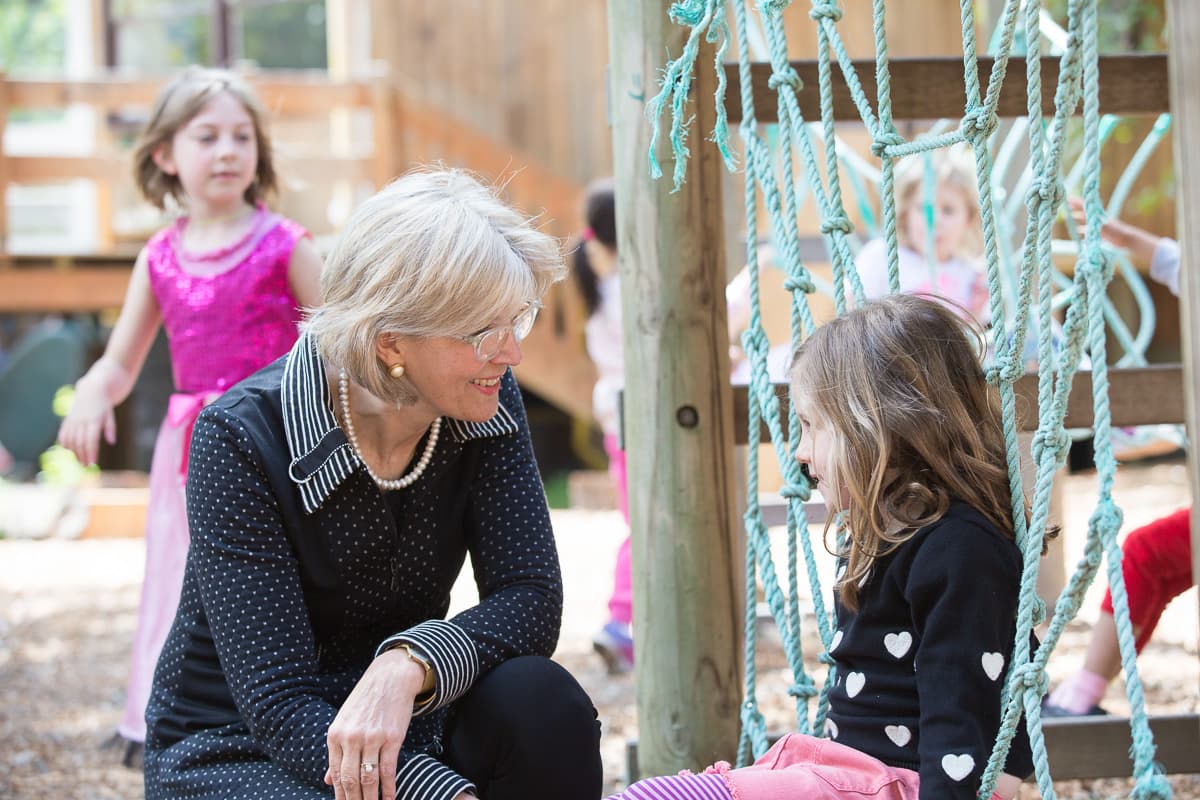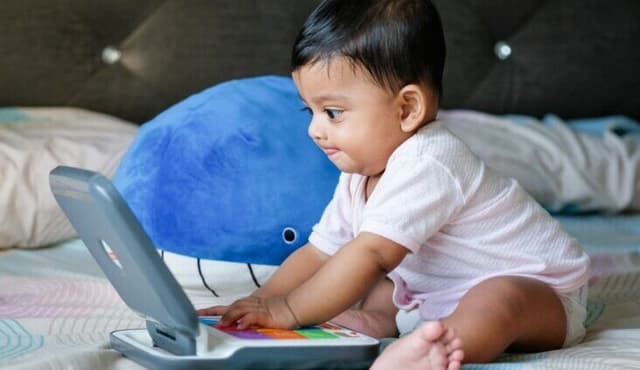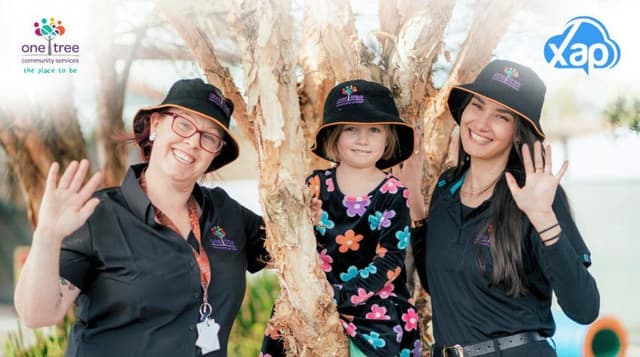Enterprise Solutions
Encountering Conceptual PlayWorlds to support children’s learning

Freya Lucas
Apr 23, 2019
Save
There’s a hidden profession underpinning “every aspect of our lives”. One that is embodied in “virtually every product and services used or consumed by Australians”, and one whose members “transform ideas into practical and commercial realities”. Sadly, it’s also a profession from which women are traditionally excluded, with their participation rates being described as “shamefully low”.
The profession is engineering, the “E” in STEM (science, technology, engineering and mathematics), and one woman is on a mission to change the way that STEM is introduced and intentionally taught to children in the years before school - Monash University Faculty of Education Professor Marilyn Fleer. The Sector Editor Freya Lucas recently spoke with Professor Fleer to learn more about her research, girls and STEM, and how educators can engage with STEM through her Conceptual PlayWorlds work.Imagination.
If one was to boil down the complexity of Professor Fleers’ Conceptual PlayWorld concept, and try and capture the rich learning, pedagogy and exploration into one world, it would be ‘imagination’. A Conceptual PlayWorld is a partnership between an educator and a group of children. An imaginary scenario, often ground in a familiar story, created by an educator. Children are invited to go on an imaginary journey where they will encounter, and solve, problems using STEM concepts.
It’s the work of childhood - play. It’s intentional teaching that moves far beyond rote learning, worksheets, and a row of identical handprints made to look like ducks. Conceptual PlayWorlds builds on educator strengths - story telling, creativity, resourcefulness, meaningful observations, play-based learning, intentional teaching and a genuine desire to partner with children as they sculpt their learning and discovery.
Conceptual PlayWorlds, Professor Fleer noted, are not periods of free play. They are experiences of “planned and led imagination” which support children to learn to think conceptually, using the medium of story.
Professor Fleer’s work is significant not only for what it does - encourages educators to think of STEM not as something that is beyond them, or the domain of school based academia - but also for how it is funded.
The Conceptual PlayWorlds work is a significant milestone for the early childhood education and care (ECEC) sector, being the first early childhood research to be funded by the Australian Research Council. The combination of five separate grants, including the prestigious and competitive Kathleen Fitzpatrick Australian Laureate Fellowship, represents a commitment of over $3 million by the research community to the sector.
“ECEC punches above its weight” Professor Fleer said, outlining the milestone that the investment represents. “We (the ECEC sector) get some of the least recognition, yet make the most impact.”She outlined that previous research in the sector had been small scale, but important, keen to point out the potential that the funding offers in giving ECEC the chance to “make a big splash over the next five years” - a possibility Professor Fleer says she is very excited about.
Empowering Educators
Professor Fleer said that previous research shows that ECEC educators lack the skill and confidence in imparting STEM learning to their young charges, especially when it comes to the intentional teaching of STEM topics. Through her research, Professor Fleer found that the problem was not with the educators, but with the tools they were provided. STEM in ECEC, she said, has been “under researched, and under funded” with educators relying on small scale, frequently international research, based on primary and secondary education tools, scaled down for early childhood.
“To not give educators the right tools, and to then blame them for poor outcomes, is shameful,” Professor Fleer said.
One of the big findings of her Conceptual PlayWorlds research was that when ECEC professionals have the right tools, researched in play-based settings “they thrive!”
“It will be a big surprise to others in the (academic and research) field to learn that, when given the right tools, ECEC educators can be creative and innovative in the STEM space, playing to their strengths in literacy, drama and imagination.”
Longer term, Professor Fleer hopes that, through participation in the five-year project, educators come to see themselves as part of the “research pipeline” who add to the pool of research showcasing educators and educational settings doing amazing things.
“As a general rule,” Professor Fleer said, “Women don’t self promote. We need to overcome that for the good of the sector, and for the good of ourselves”
Why STEM?
According to the Women in Science, Technology, Engineering and Mathematics (STEM) Decadal Plan, demand for STEM skills in Australia is high, and cannot be met over the coming decade unless “cohesive and collective action is taken to maximise the attraction, participation and retention of men and women in the workforce”.
“We want to turn around 20 years of girls being overlooked in the STEM space, and the idea that educators in early childhood can’t ‘do’ STEM,” Professor Fleer said.The plan further notes the challenges faced by women hoping to pursue careers in a STEM-based field, outlining the shared responsibility of government, academia, the education system, industry and the community to make STEM a more welcoming space - which is where Professor Fleer comes in.
“With this research,” she said, “we can change the narrative, and inspire young girls to think of themselves, and see themselves, as engineers, mathematicians, scientists...the messages we give them in early childhood are key to that foundation. We need to open up the STEM space, and create a model of practice which says, firmly and loudly, girls CAN.”
Inputs and outputs
Educators engaging with Conceptual PlayWorlds are well supported with an app and series of how-to videos specifically designed to support early childhood educators to design and implement their own Conceptual PlayWorlds, and a series of examples designed to support educators to grow and develop their understanding.
When asked if it was simple to use, Professor Fleer said it’s straightforward, easy to use and has minimal steps…“if they can download it, they can use it!”
In essence, the Conceptual PlayWorlds app provides educators with an evaluation, observation and reflection tool that educators can use to capture moments, via photo or video and add text, which serve as “breadcrumbs” to help educators plan ongoing learning and experiences.
In terms of the outputs from the Conceptual PlayWorlds tool, the work recorded by educators will help researchers to gain a deeper understanding of the complexity of the work done by early childhood educators as they read and view the observations, and come to understand the significance of the moment in the same way as educators do.
When asked what longer term outputs she hoped for from educators engaging with the Conceptual PlayWorlds tool, Professor Fleer said she hoped for diverse stories, videos and moments which demonstrate the flexibility and adaptable nature of early childhood educators and settings.
Over the five-year period, the content added to the app will shape not only the research outputs, but also create tools and professional development applications that support educators to change the story about girls and STEM.
“We know that educators are doing beautiful things, but they need a model they can engage with that supports them to take girls from the periphery and put them at the centre of deliberate and purposeful STEM learning.”
How to be involved
Professor Fleer is looking for early childhood educators who would like to be involved in the Conceptual PlayWorlds research.
Participation includes a free two-hour professional learning session to show educators how to run a Conceptual PlayWorld, and gives educators an opportunity to explore their own ideas, and site context, with researchers.
To register your interest in the project, click here.
Don’t miss a thing
Related Articles



















